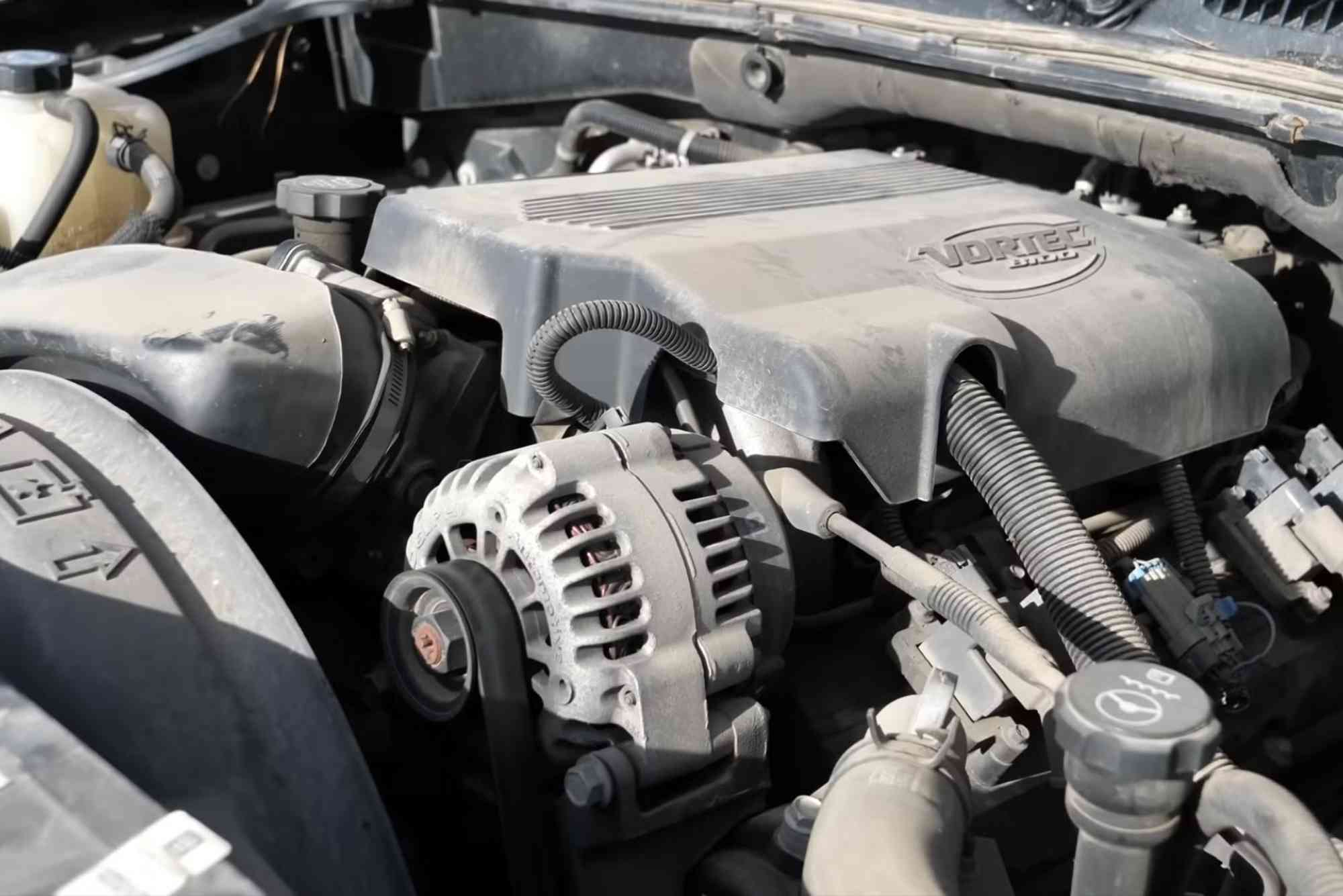Chevrolet Avalanche Engine: Overview and Common Problems
The Chevrolet Avalanche is one of the most unique trucks ever made, combining the utility of a pickup with the comfort of an SUV. A major reason behind its success and versatility lies in the powertrain. The Chevrolet Avalanche engine has always been a point of discussion among enthusiasts and owners, not only for its performance but also for the common issues it has faced over time. Understanding its engine options, strengths, and weaknesses helps current owners maintain their vehicles better and potential buyers make informed decisions.
Overview of the Chevrolet Avalanche Engine
The Chevrolet Avalanche debuted in 2001 for the 2002 model year and quickly became popular for its midgate design, which allowed the rear seats to fold down and extend the truck bed. Its engine offerings varied slightly between generations, but overall, they focused on delivering strong power, smooth performance, and decent towing capacity.
The first-generation Avalanche (2002–2006) was powered primarily by V8 engines. The most common was the 5.3L Vortec V8, known for its balance of reliability and performance. For those seeking more power, Chevrolet offered a 8.1L Vortec V8, which delivered massive torque and towing capability but suffered from poor fuel economy.
The second-generation Avalanche (2007–2013) featured the improved 5.3L V8 with Active Fuel Management, designed to shut off half of the cylinders under light loads to save fuel. A 6.0L V8 was also available in earlier years, offering more horsepower for those who wanted stronger performance. Later models continued with the 5.3L V8 but included updated technology for better emissions and efficiency.
Throughout its production run, the Chevrolet Avalanche engine was paired with automatic transmissions and often featured flex-fuel capability, allowing it to run on either gasoline or E85 ethanol blends. Overall, the engines were powerful and long-lasting when properly maintained, but like any vehicle, they were not without issues.
Common Problems with the Chevrolet Avalanche Engine
While the Avalanche has a loyal fan base, many owners have reported recurring engine-related problems. Some issues are minor and can be resolved with routine maintenance, while others may require more serious attention.
Oil Consumption Issues
One of the most widely reported problems in the Chevrolet Avalanche engine is excessive oil consumption. This is especially common in models equipped with Active Fuel Management (AFM). The AFM system deactivates half of the cylinders to save fuel, but it often leads to oil burning, stuck piston rings, and fouled spark plugs. Owners often notice low oil levels between changes, blue smoke from the exhaust, or rough engine performance.
Cylinder Deactivation Problems
The AFM system itself, while innovative, has been a frequent cause of headaches for Avalanche owners. Malfunctions in the system can cause misfires, lifter failures, and even engine damage. Many owners have chosen to disable AFM altogether with aftermarket solutions, sacrificing some fuel efficiency for long-term reliability.
Transmission and Engine Compatibility
Though technically not an engine fault, many Avalanche owners experience problems related to transmission shifts, which directly affect how the engine feels. Hard shifts, slipping gears, or hesitation can make it seem like the engine is underperforming. This usually stems from transmission wear or a need for software updates rather than an actual engine defect.
Timing Chain Wear
In higher-mileage Avalanches, especially those with the 5.3L engine, timing chain wear can become a problem. A worn timing chain may cause rattling noises, poor performance, or even check engine lights related to timing codes. If ignored, it can lead to severe engine damage.
Cooling System Problems
Overheating issues are not uncommon in the Chevrolet Avalanche engine. Problems often arise from failing water pumps, radiator leaks, or thermostat malfunctions. Because V8 engines generate significant heat, maintaining the cooling system is critical to prevent costly repairs.
Intake Manifold Leaks
The 5.3L and 8.1L Vortec engines are also known for intake manifold gasket failures. A leaking gasket can cause coolant loss, overheating, or even mixing of coolant with engine oil. This problem is often detected by noticing coolant pooling under the vehicle or a sweet smell from the engine bay.
Sensor and Electrical Problems
The Avalanche’s engine is equipped with numerous sensors for emissions, fuel, and air management. Mass airflow sensor failures, oxygen sensor problems, and throttle body issues have been reported. While not always catastrophic, these problems can cause rough idling, poor fuel economy, and illuminated check engine lights.
Preventing Chevrolet Avalanche Engine Problems
Although some of these problems may sound alarming, many can be prevented or minimized with proper care. Regular oil changes with high-quality oil are essential, especially for AFM-equipped engines. Checking oil levels frequently can help catch consumption issues before they cause engine damage.
Keeping the cooling system in top shape with regular coolant flushes, radiator inspections, and water pump checks helps avoid overheating. For higher-mileage Avalanches, replacing the timing chain proactively can prevent major failures.
Owners who want to reduce AFM-related problems can consider AFM delete kits, which remove the cylinder deactivation system. While this may reduce fuel efficiency slightly, it often increases engine longevity.
Performance and Reliability of the Chevrolet Avalanche Engine
Despite its issues, the Chevrolet Avalanche engine is respected for its overall durability. Many owners report reaching over 200,000 miles with proper maintenance. The Vortec engines in particular have a reputation for being strong, simple, and capable of handling both daily driving and heavy towing.
The performance is more than adequate for most needs. The 5.3L engine provides a good balance of power and efficiency, while the 8.1L and 6.0L engines deliver extra muscle for towing or hauling. For drivers who appreciate versatility, the Avalanche’s engine lineup was one of its greatest strengths.
FAQs
What engine is in a Chevrolet Avalanche?
Most Chevrolet Avalanches come with a 5.3L V8 engine. Some models also offered a 6.0L V8 or an 8.1L V8 for more power.
Is the Chevrolet Avalanche engine reliable?
Yes, with proper maintenance, the Avalanche engine is reliable. Many last over 200,000 miles, though AFM-equipped models can face oil consumption issues.
What is the most common problem with the Chevrolet Avalanche engine?
Excessive oil consumption and AFM-related issues are the most common problems. Cooling system failures and intake gasket leaks are also frequent.
Can I disable Active Fuel Management in my Avalanche?
Yes, many owners use AFM delete kits or tune the system off. This can improve reliability but may reduce fuel economy slightly.
How much does it cost to replace a Chevrolet Avalanche engine?
Depending on the year and engine type, a replacement can cost between $4,000 and $7,000, including labor. Used or rebuilt engines may cost less.
What is the fuel economy of the Chevrolet Avalanche engine?
The 5.3L engine averages around 15–21 mpg, depending on driving conditions. Larger engines like the 8.1L V8 consume more fuel, averaging closer to 10–14 mpg.
The Chevrolet Avalanche is no longer in production, but it remains a favorite among truck enthusiasts. Its engine lineup provided the power and reliability needed for a wide range of uses, from family road trips to heavy towing. Like any vehicle, it has its share of common issues, especially with AFM-equipped models, but many of these can be managed with preventive maintenance.
If you already own an Avalanche, staying ahead of oil consumption, cooling system checks, and timing chain inspections can extend the life of your engine. If you are considering buying one, knowing the history of the specific truck, including maintenance records, is crucial.




